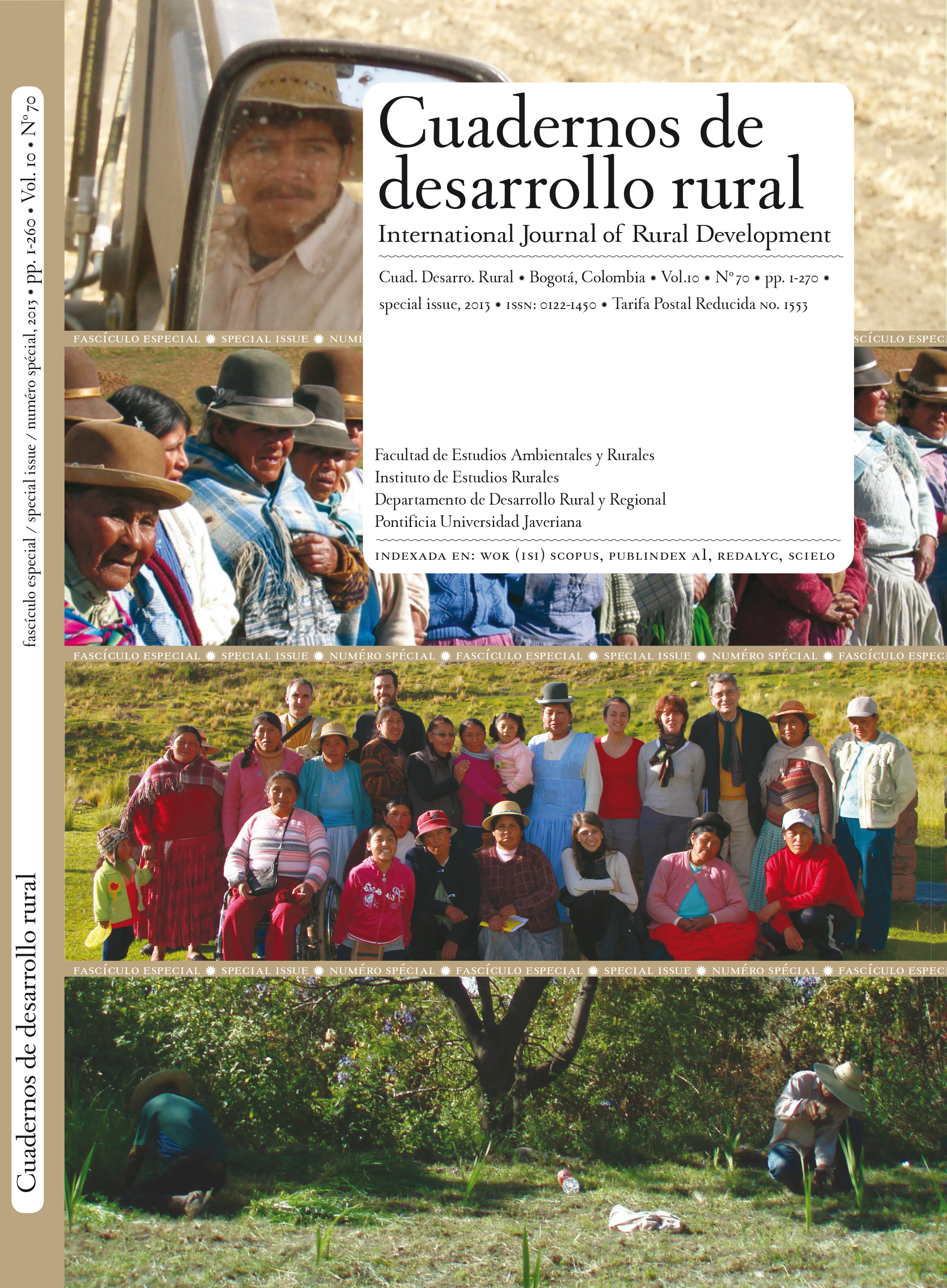Abstract
The present article is a result of the research entitled “An eco-technological model for handicraft production in wood carving and weaving with Iraca fibres” with the rural communities of Galapa and Usiacurí, located in the Colombian Caribbean region. We centered our analysis on the productive reality of the artisan communities, for which we sought the relations between the variables associated to the local technology. We worked using participatory methodologies. The eco-technological model we obtained reveals the complexity of the key relations existing among the artisan groups in order to achieve an appropriate productivity level. We concluded that the global economic challenges for the rural artisans calls for a technological productivity based on the sustainable use of the natural resources that is necessary for the handcraft production.Cuadernos de Desarrollo Ruralis registered under a Creative Commons Attribution 4.0 International Public License. Thus, this work may be reproduced, distributed, and publicly shared in digital format, as long as the names of the authors and Pontificia Universidad Javeriana are acknowledged. Others are allowed to quote, adapt, transform, auto-archive, republish, and create based on this material, for any purpose (even commercial ones), provided the authorship is duly acknowledged, a link to the original work is provided, and it is specified if changes have been made. Pontificia Universidad Javeriana does not hold the rights of published works and the authors are solely responsible for the contents of their works; they keep the moral, intellectual, privacy, and publicity rights.
Approving the intervention of the work (review, copy-editing, translation, layout) and the following outreach, are granted through an use license and not through an assignment of rights. This means the journal and Pontificia Universidad Javeriana cannot be held responsible for any ethical malpractice by the authors. As a consequence of the protection granted by the use license, the journal is not required to publish recantations or modify information already published, unless the errata stems from the editorial management process. Publishing contents in this journal does not generate royalties for contributors.


